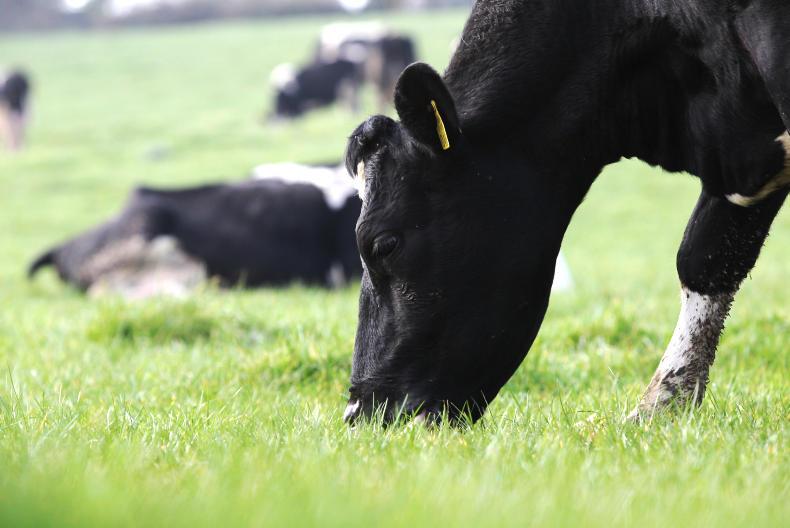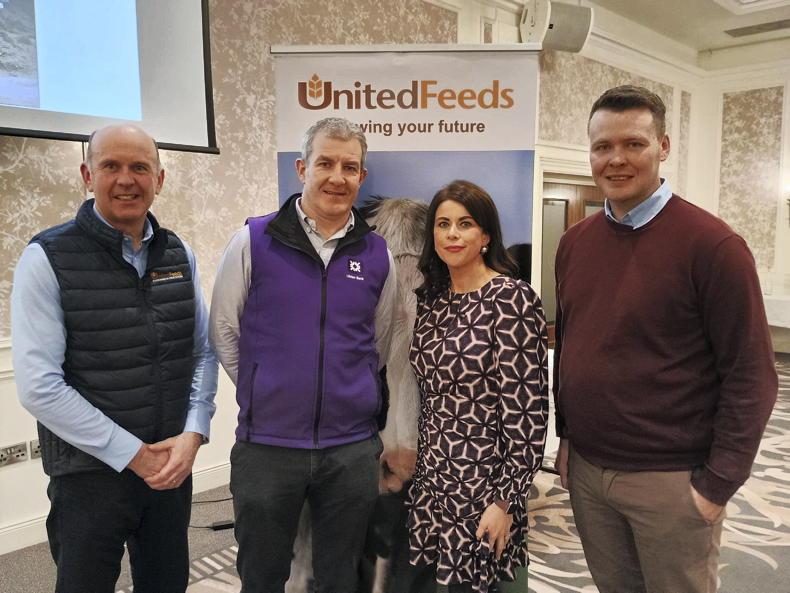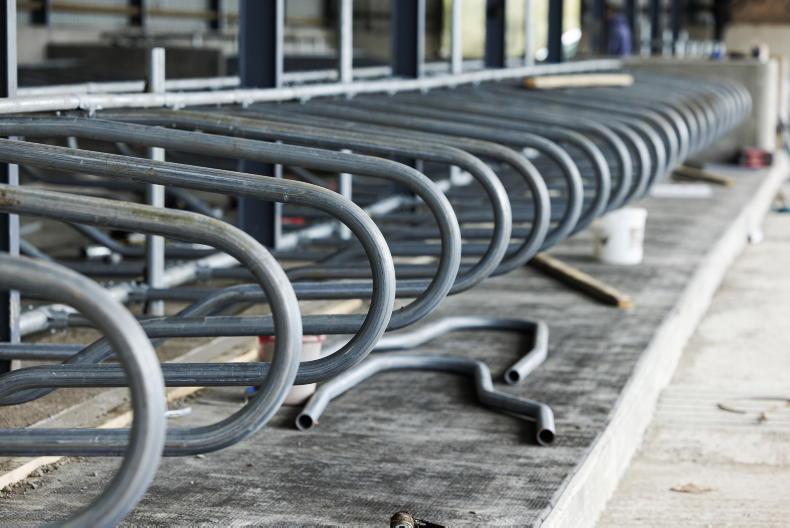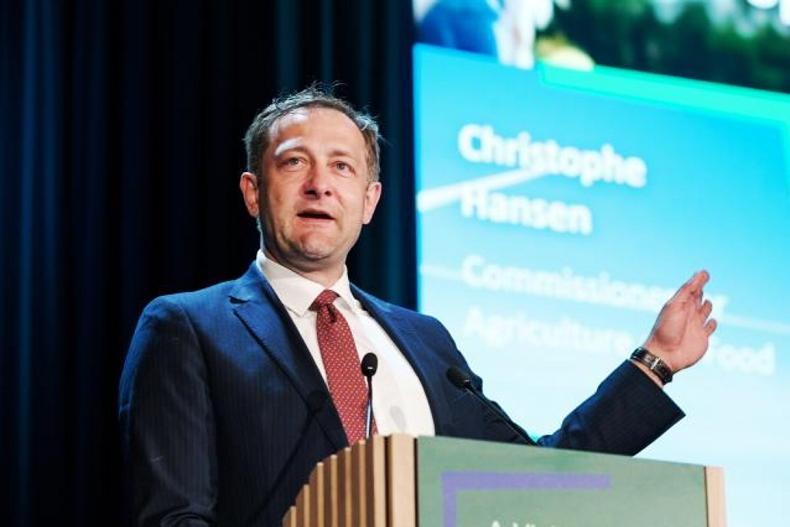On Wednesday 22 April, the European Commissioner for Agriculture and Rural Development announced a €30m aid package for the EU dairy sector.
The aim of the scheme, referred to as aid for private storage (APS), is to facilitate producers to store products for a stipulated storage period.
At the end of the storage period, the storer receives aid at a rate which has been fixed in advance. The purpose is to balance supply and demand in times of market shocks or crises.
It is estimated that this package would allow storage for a total of 330,000t of dairy produce, according to market sources.
Cold response
On the face, one might expect such an announcement, in current times especially, to be warmly greeted.
However, dairy farmer organisations have given the announcement what can at best be described as a cold response. This is understandable when the following is considered.
The fact that this is first-come-first-served-based can be seen as an indication that this scheme will be oversubscribed.
Given that the rate per tonne has decreased from previous similar schemes suggests that inventory buildup is anticipated by the Commission.
Next, given that in 2019 the EU produced in excess of 2.4m tonnes of butter, 1.8m tonnes of SMP and in excess of 10m tonnes of cheese, the supported quantity can be considered very modest.
Finally, as this measure is supposed to support all EU dairy farmers, it is hard to argue with one organisation which estimated that this really represent a payment of less than €10 per farm.
US response
Meanwhile, on Friday 17 April, the US Department of Agriculture announced a $19bn plan called the Coronavirus Food Assistance Program (CFAP) to help farmers, ranchers and consumers and maintain the food supply chain in the US.
Of this amount, US dairy farmers will receive $2.9bn of the $16bn in direct payments to various commodity producers. Furthermore, the program is authorising purchases of $100m per month of dairy products for 10 months.
This is aside from section 32 funding to purchase a variety of agricultural products for distribution to food banks.
The use of these funds will be determined by industry requests, market analysis and food bank needs, so it is likely that dairy will share part of this $873m overall pot.
Insurance indemnities
It should also be noted that many US farmers will also avail of insurance indemnities.
US-based academic Marin Bozic estimates that based on early April futures prices, these indemnities could add a further $1.4bn to farm revenues in 2020.
These amounts will undoubtedly make a large difference to the financial health and competitiveness of US dairy farmers as they supply circa 100m tonnes of milk this year.
EU farmers who will produce circa 160m tonnes of milk this year can only look on with envy and frustration.
Read more
COVID-19 an opportunity ‘to capitalise on new respect for food’
Farm organisations unimpressed with Commission supports
Exclusive: EU to fund private storage for 330,000t of dairy and 61,000t of meat
On Wednesday 22 April, the European Commissioner for Agriculture and Rural Development announced a €30m aid package for the EU dairy sector.
The aim of the scheme, referred to as aid for private storage (APS), is to facilitate producers to store products for a stipulated storage period.
At the end of the storage period, the storer receives aid at a rate which has been fixed in advance. The purpose is to balance supply and demand in times of market shocks or crises.
It is estimated that this package would allow storage for a total of 330,000t of dairy produce, according to market sources.
Cold response
On the face, one might expect such an announcement, in current times especially, to be warmly greeted.
However, dairy farmer organisations have given the announcement what can at best be described as a cold response. This is understandable when the following is considered.
The fact that this is first-come-first-served-based can be seen as an indication that this scheme will be oversubscribed.
Given that the rate per tonne has decreased from previous similar schemes suggests that inventory buildup is anticipated by the Commission.
Next, given that in 2019 the EU produced in excess of 2.4m tonnes of butter, 1.8m tonnes of SMP and in excess of 10m tonnes of cheese, the supported quantity can be considered very modest.
Finally, as this measure is supposed to support all EU dairy farmers, it is hard to argue with one organisation which estimated that this really represent a payment of less than €10 per farm.
US response
Meanwhile, on Friday 17 April, the US Department of Agriculture announced a $19bn plan called the Coronavirus Food Assistance Program (CFAP) to help farmers, ranchers and consumers and maintain the food supply chain in the US.
Of this amount, US dairy farmers will receive $2.9bn of the $16bn in direct payments to various commodity producers. Furthermore, the program is authorising purchases of $100m per month of dairy products for 10 months.
This is aside from section 32 funding to purchase a variety of agricultural products for distribution to food banks.
The use of these funds will be determined by industry requests, market analysis and food bank needs, so it is likely that dairy will share part of this $873m overall pot.
Insurance indemnities
It should also be noted that many US farmers will also avail of insurance indemnities.
US-based academic Marin Bozic estimates that based on early April futures prices, these indemnities could add a further $1.4bn to farm revenues in 2020.
These amounts will undoubtedly make a large difference to the financial health and competitiveness of US dairy farmers as they supply circa 100m tonnes of milk this year.
EU farmers who will produce circa 160m tonnes of milk this year can only look on with envy and frustration.
Read more
COVID-19 an opportunity ‘to capitalise on new respect for food’
Farm organisations unimpressed with Commission supports
Exclusive: EU to fund private storage for 330,000t of dairy and 61,000t of meat









SHARING OPTIONS